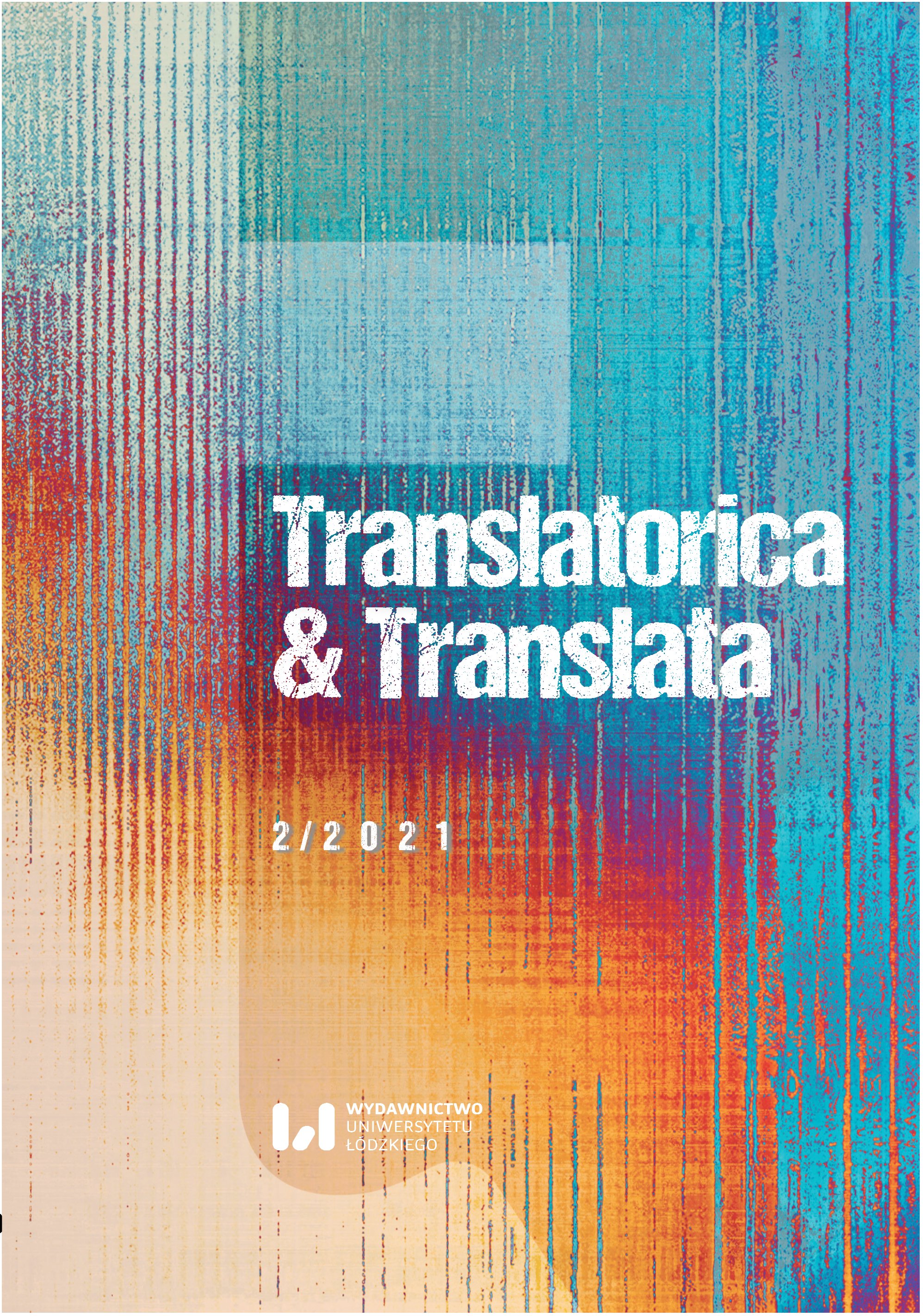International and/or national philosophical terms in the domain of philosophy
DOI:
https://doi.org/10.18778/2544-9796.02.04Keywords:
comprehension, international terms, native language terms, philosophical terms, synonymy, terminologyAbstract
Philosophy as a universal system of knowledge and the main corpus of the philosophical terminology consists of international terms. There are cases, however, when philosophers choose to, create a native word instead of employing a wellknown international term. The term Meddelelse, for instance, was introduced by the Danish philosopher Soren Kierkegaard. According to him, different aspects of communication are included in this concept to be denominated by the Danish word Meddelelse. Another example in this respect is the national term introduced by the Latvian philosopher Rihards Kūlis for the international term nacionālā identitāte. Contemporary philosophers tend to claim that philosophy does not belong only to the elitist part of the society. If such is the case, the philosophers try to facilitate the comprehension process for the native readers in order to ensure a deeper understanding of definite notions. Hence they endevour to accommodate their writing in the way their readers could fully grasp the meaning of the intended message.
References
Celms, T. (1939). Patiesība un šķitums. Rakstu krājums. Rīga: Valters un Rapa.
Google Scholar
Hannay, A. (1999). Soren Kierkegaard’s Levellings and the Review. Kierkegaard Studies Yearbook 1999. Berlin–New York: Walter de Gruyter, pp. 71–95 https://doi.org/10.1515/9783110244014.71
Google Scholar
DOI: https://doi.org/10.1515/9783110244014.71
Hannay, A. (2001). Something on Hermeneutics and Communication in Kierkegaard After All. Soren Kierkegaard Newsletter, 42. pp. 8–14.
Google Scholar
Ikere, Z. (1991). Internacionālismi filozofijas terminoloģijā. Valodas aktualitātes – 90. Rīga: Zinātne, pp. 63–73.
Google Scholar
Isaacs, A.K. (ed.). (2010). Citizenships and Identities: Inclusion, Exclusion, Participation. Pisa: Edizioni Plus – Pisa University Press.
Google Scholar
Kūle, M. (2006). Eirodzīve: formas, principi, izjūtas. Rīga: LU Filozofijas un socioloģijas institūts.
Google Scholar
Kūle, M. (2016). Jābūtības vārdi. Etīdes par zināšanām un vērtībām mūsdienu Latvijā. Rīga: Zinātne.
Google Scholar
Kūle, M., Kūlis, R. (1996, 1997). Filosofija. 2. izd. Burtnieks.
Google Scholar
Kūlis, R. (2015). Kultūras fenomenoloģija, latviskā savdabība un rietumu dzīvesformas. Kants, Heidegers un dzīves pasaule. Rīga: LU aģentūra LU Filozofijas un socioloģijas institūts, pp. 499–549.
Google Scholar
KF ‒ Kultūras feminisms. Feminisma terminu skaidrojošā vārdnīca. (2017). Sast. Un zin. red. Dr. philol. Ausma Cimdiņa un Dr. philol. Nataļja Šroma. [Rīga]: Zinātne.
Google Scholar
LAV – Latviešu – angļu vārdnīca. (1997). Prof. Andreja Veisberga red. Rīga: SIA Ekonomisko attiecību institūts.
Google Scholar
LLVV – Latviešu literārās valodas vārdnīca. (1989). 7(1) sēj. Rīga: Zinātne.
Google Scholar
LVSV – Latviešu valodas sinonīmu vārdnīca. (1964). Rīga: LVI.
Google Scholar
LVSV – Latviešu valodas sinonīmu vārdnīca. (1972). 2. izd. Rīga: Liesma.
Google Scholar
LVSV – Latviešu valodas sinonīmu vārdnīca. (2002). 3. izd. Rīga: Avots.
Google Scholar
RETS – Routledge Encyclopedia of Translation Studies. (2011). M. Baker and G. Saldanha (eds), London–New York: Routledge.
Google Scholar
Skujiņa, V. (2002). Latviešu terminoloģijas izstrādes principi. Otrais, labotais un papildinātais izdevums. Rīga: LVI.
Google Scholar
Vecvagars, M. (1989). Reliģijas apjēgums Hēgeļa reliģijas filosofijas lekcijās. Viņpus laba un ļauna? Morāle un reliģija pasaulē un Latvijā. Rīga: Avots, pp. 9‒47.
Google Scholar
Vecvagars, M. (1990). Filozofijas savveidība Platona skatījumā. Domas par antīko filozofiju. Rīga: Avots, pp. 80‒101.
Google Scholar
Vēvere, V. (2011). Sērens Kirkegors: būt un vēstīt. Rīga: Latvijas Universitātes aģentūra „Latvijas Universitātes Filozofijas un socioloģijas institūts”.
Google Scholar
Published
How to Cite
Issue
Section
License
Copyright (c) 2021 Translatorica & Translata

This work is licensed under a Creative Commons Attribution-NonCommercial-NoDerivatives 4.0 International License.








